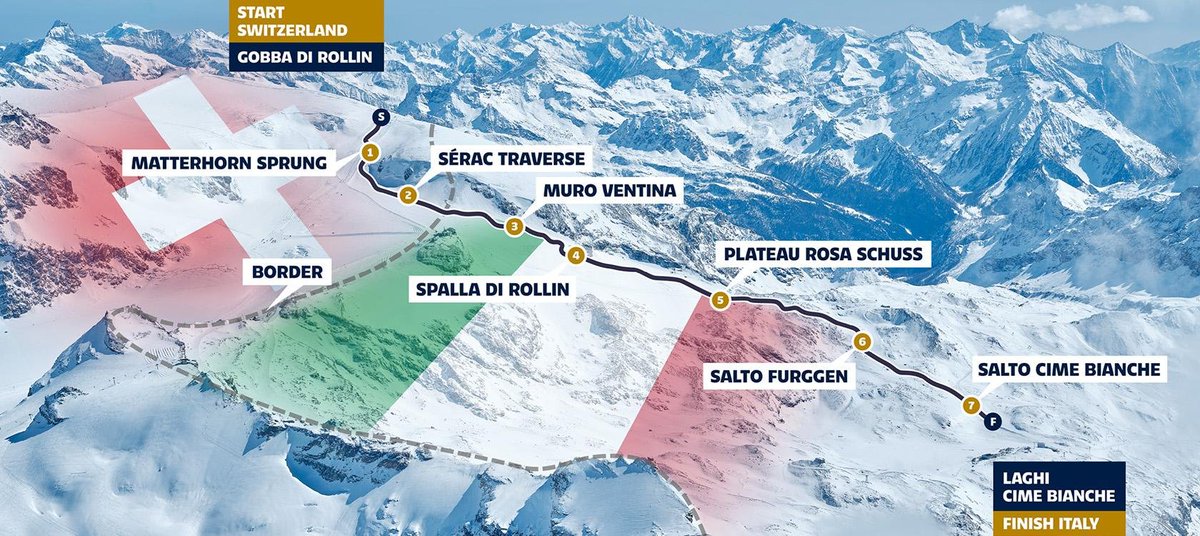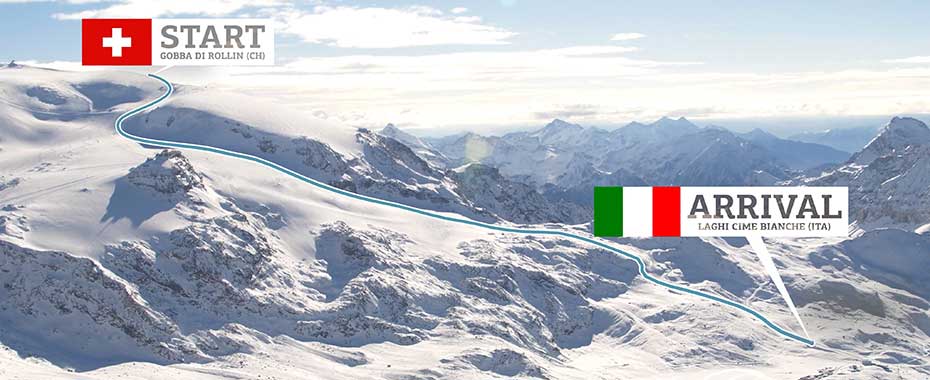New race to kick off World Cup speed circuit earlier than ever – If it snows
“We only need 50 centimetres of snow!” Zermatt prays to the snow gods as highest ever downhill race nears


Words| Iain Martin, presenter of The Ski Podcast
In just over six weeks’ time, the fastest downhill ski racers in the world will be gasping for air as they fling themselves down from the highest ever World Cup start line. Probably.
“We only need 50 centimetres of snow” says Christian Ziörjen, the CEO of ‘Speed Opening’, the new blue riband event that will kick off this winter’s racing season.
‘Speed Opening’ will be the first ever cross-border World Cup race, with racers starting in Switzerland, before descending at top speed towards neighbouring Cervinia in Italy.
Ziörjen’s open-plan office in the Swiss ski resort of Zermatt is located between a jeweller’s selling diamond encrusted watches and an estate agent selling uber luxury chalets. Neither has prices in their windows: because if you need to ask how much it costs, you simply can’t afford it. This is Zermatt, after all: the reassuringly expensive home of the iconic Matterhorn. But money alone cannot guarantee that the races will take place.
After a dry winter and the hottest summer on record, skiing on the glacier in Zermatt – normally available 365 days a year – is currently closed to the public due to a lack of snow. Despite that Ziörjen remains confident. “There’s still two months to go and we only have to be ready ten days in advance,” he says.
While there are no snow cannons on the glacier, the lower part of the ‘Grand Becca’ course, on the Italian side, can create man-made snow. “Of course we would prefer natural snow,” says Ziörjen, “but we only need four or five days of cold weather to produce enough artificial snow.”
While having enough snow will be the challenge for the organisers, racers will have to cope with the lung-busting task of racing at a much higher altitude than normal.
The course will begin in Switzerland at 3700m, in the shadow of famous four-thousand metre peaks such as Breithorn, Castor, Pollux and, of course, the Matterhorn itself. Few resorts even offer lift-served skiing that high.

By the time competitors cross the finish line at Laghi Cime Bianche in Italy at 2865m, they will still be over 400m higher than the start of the downhill course where former Swiss racer, Pirmin Zurbriggen, won his gold medal at the 1988 Winter Olympics.
“We had longer downhills in our time,” says Zurbriggen, an ambassador for ‘Speed Opening’ and Zermatt local. “Today races are shorter, but athletes need more power, so it’s going to be interesting to see how the current set of racers cope.”
BBC Ski Sunday presenter and ex-Team GB downhiller Chemmy Alcott agrees that the altitude will make it challenging: “They will be pushing themselves because of the lack of oxygen, which will add endurance to the racing skills they need.”
The four-time Winter Olympian is looking forward to the cross-border event. “It’s going to be really exciting to see them race a new World Cup track that has never been skied before,” says Alcott.
She believes it will create a level playing field. “Smaller nations don’t normally have access to the same data as the larger nations use to help them choose the fastest lines,” she says.
“Both the most experienced skiers and the complete rookies are cramming to learn the new terrain and make history. There’s been no test event or video to analyse, so there is a big opportunity.”
The idea of a new cross-border race was inspired by the CHF30 million ‘Alpine Crossing’ cable car. It will connect Zermatt’s highest point at the 3921m Klein Matterhorn to Testa Grigia, the highest point on the Italian side at 3458m.
The new cable car will not open until spring 2023, but the World Cup governing body FIS asked ‘Speed Opening’ to bring forward their event by a year. “In our minds it was always 2023,” says Ziörjen, “but FIS wanted to grow the autumn racing calendar.”
Alcott is emphatic about the changes required for ski racing to continue: “With climate change, for our sport to exist, adaptions to the World Cup calendar are essential. Bringing this downhill in earlier in the season is really important.”
Ziörjen is optimistic it can become an annual fixture: “Our dream is to look back in 50 years and see that we have created a ‘classic’ like other races.”
We can only keep our fingers crossed that the snow gods listen and that the coming weeks provide enough snow for the inaugural event to take place.
Iain Martin is the presenter of The Ski Podcast. He stayed at the Hotel La Couronne in Zermatt. He travelled to Switzerland in a Tesla electric car to minimise the carbon footprint for his visit.